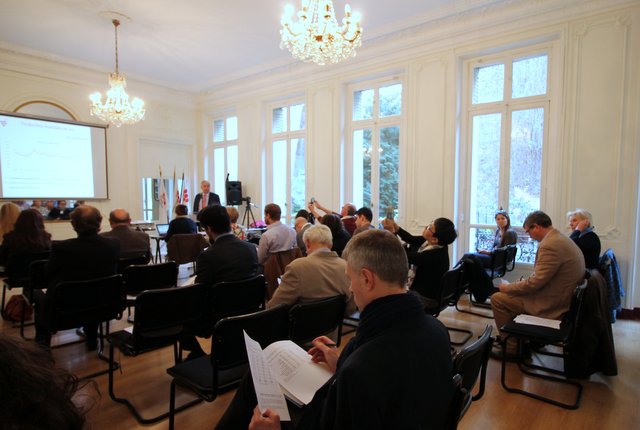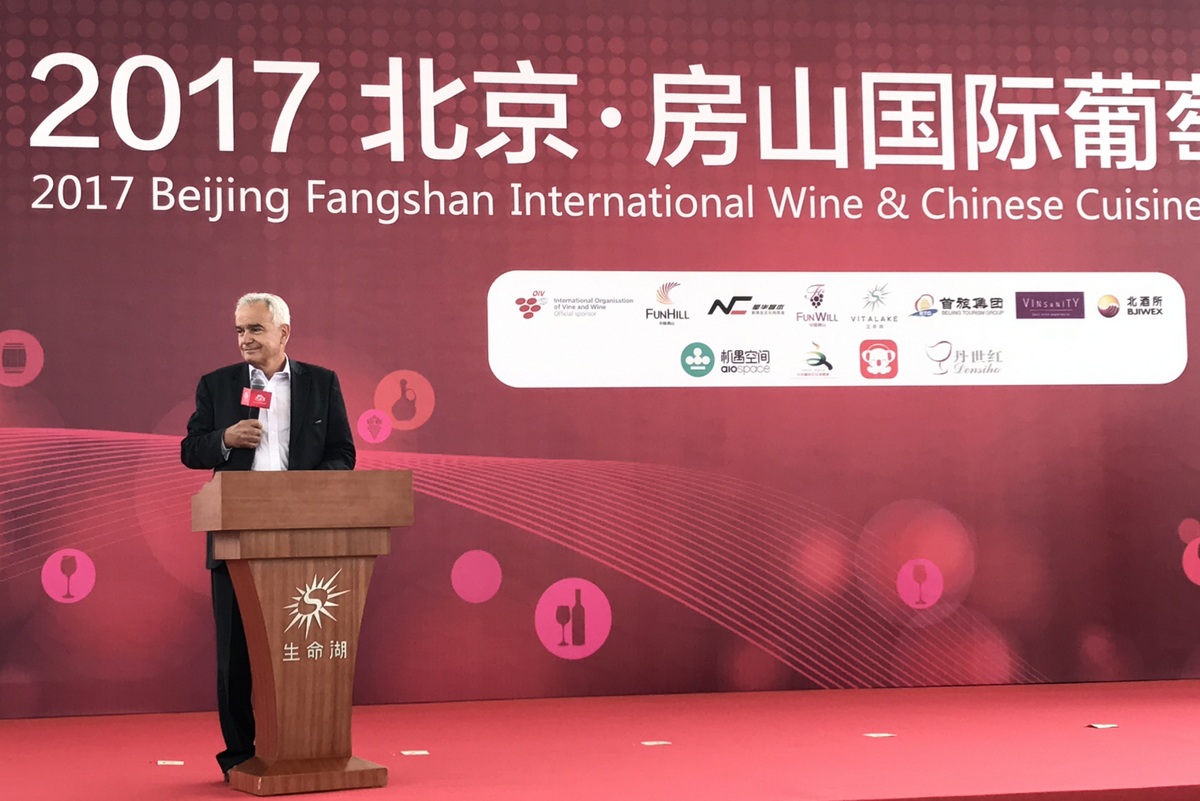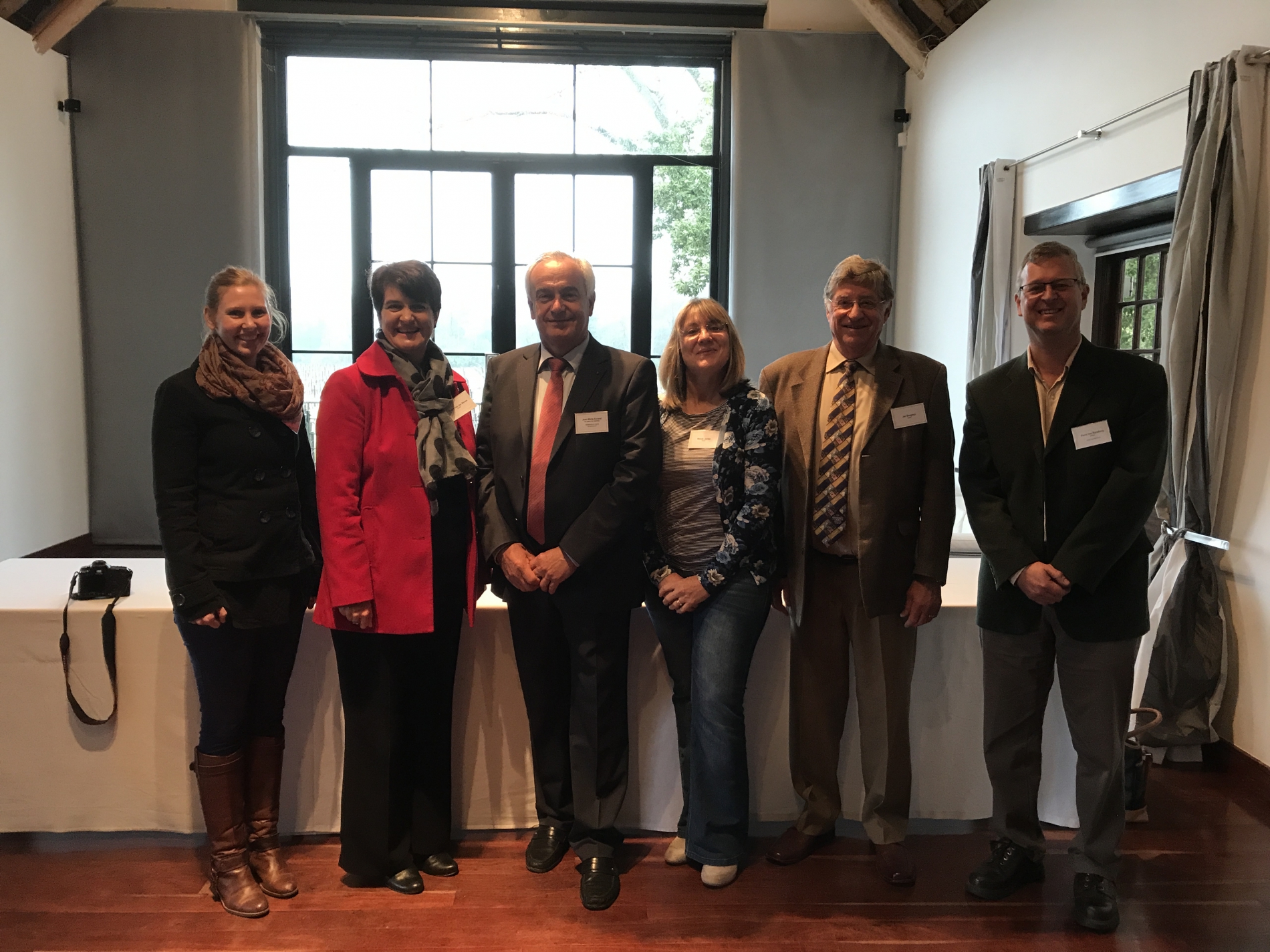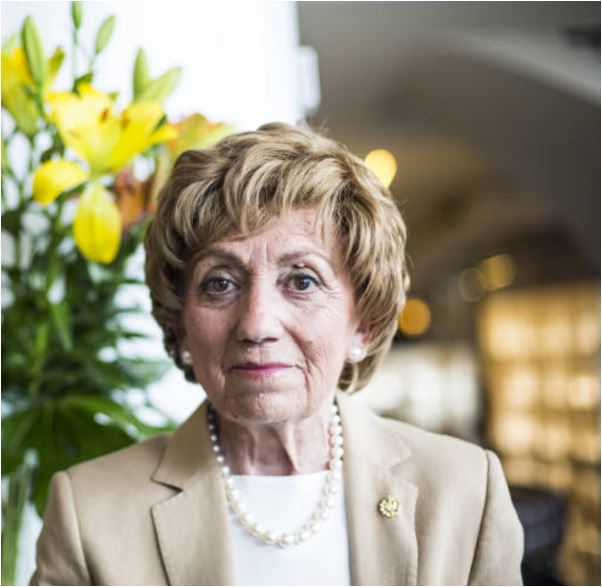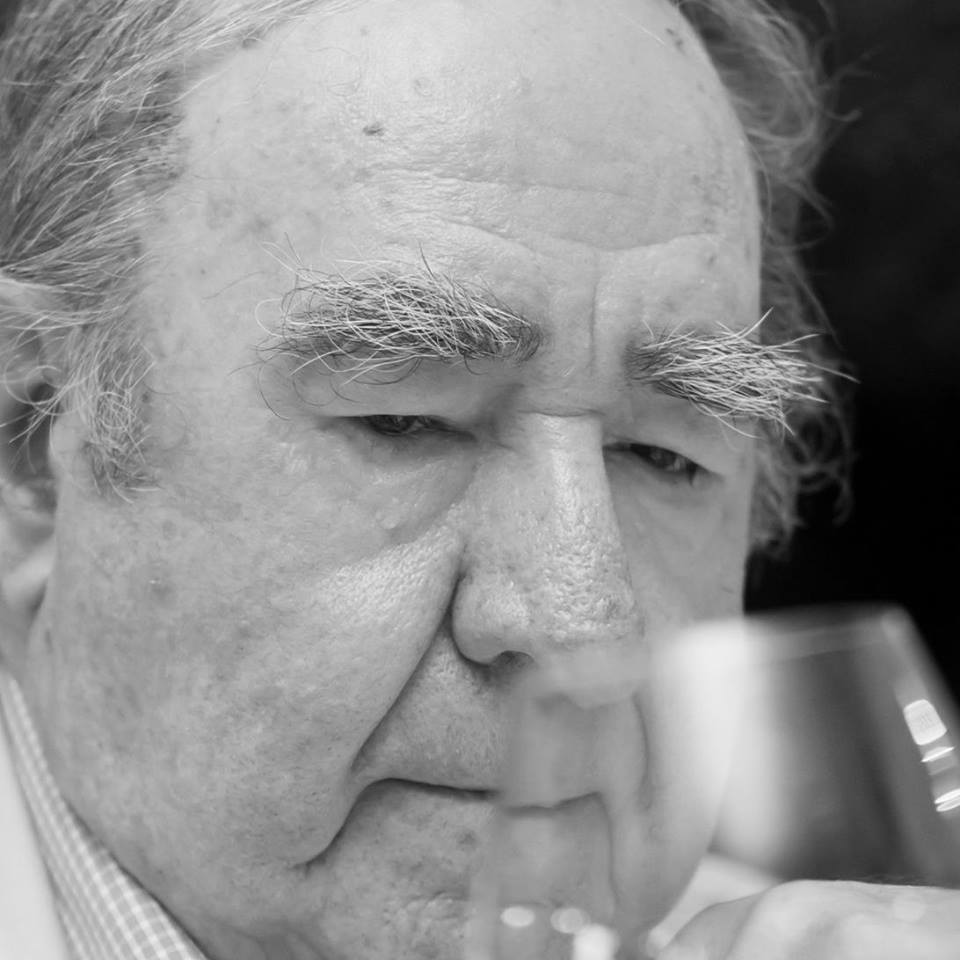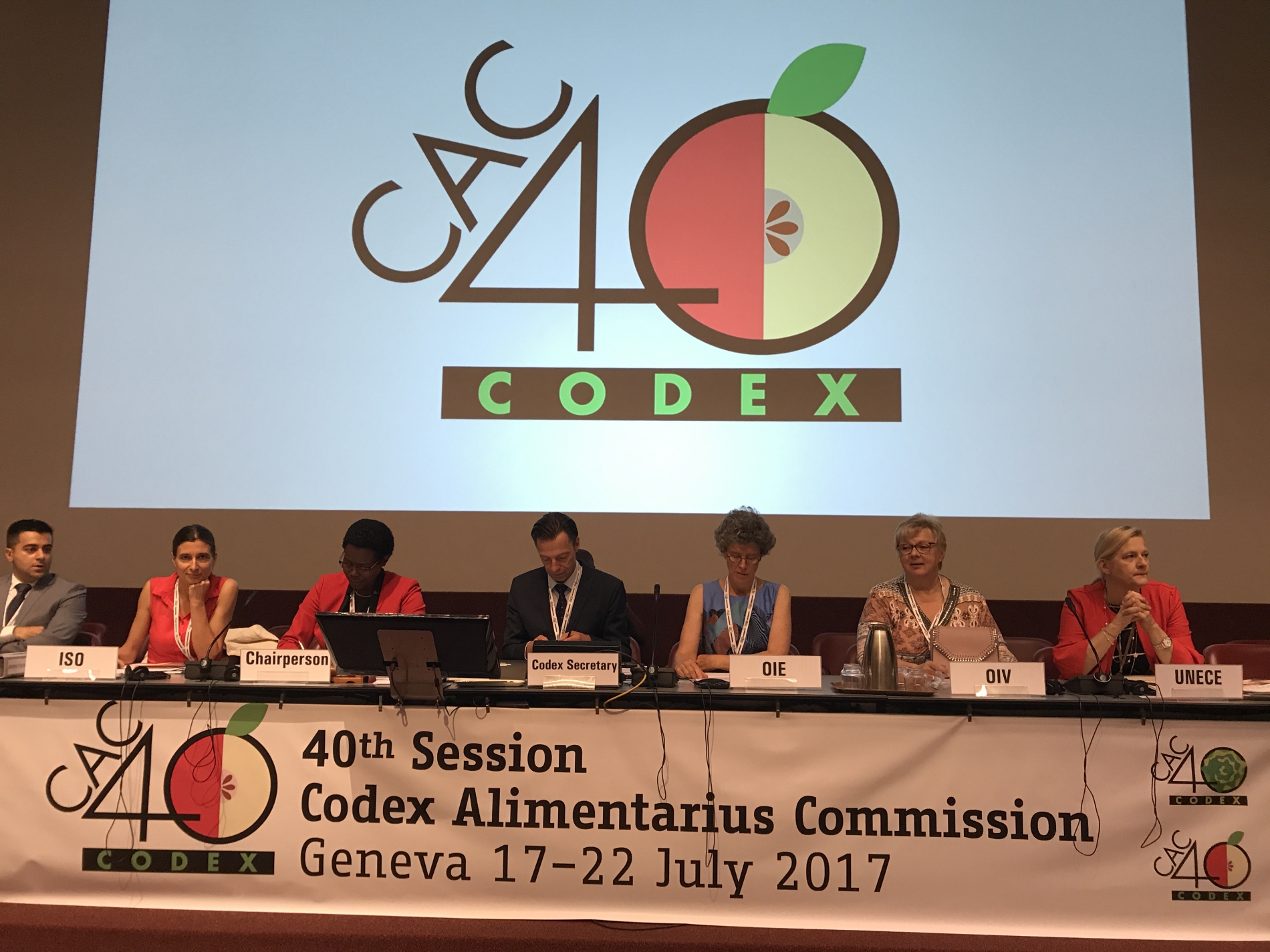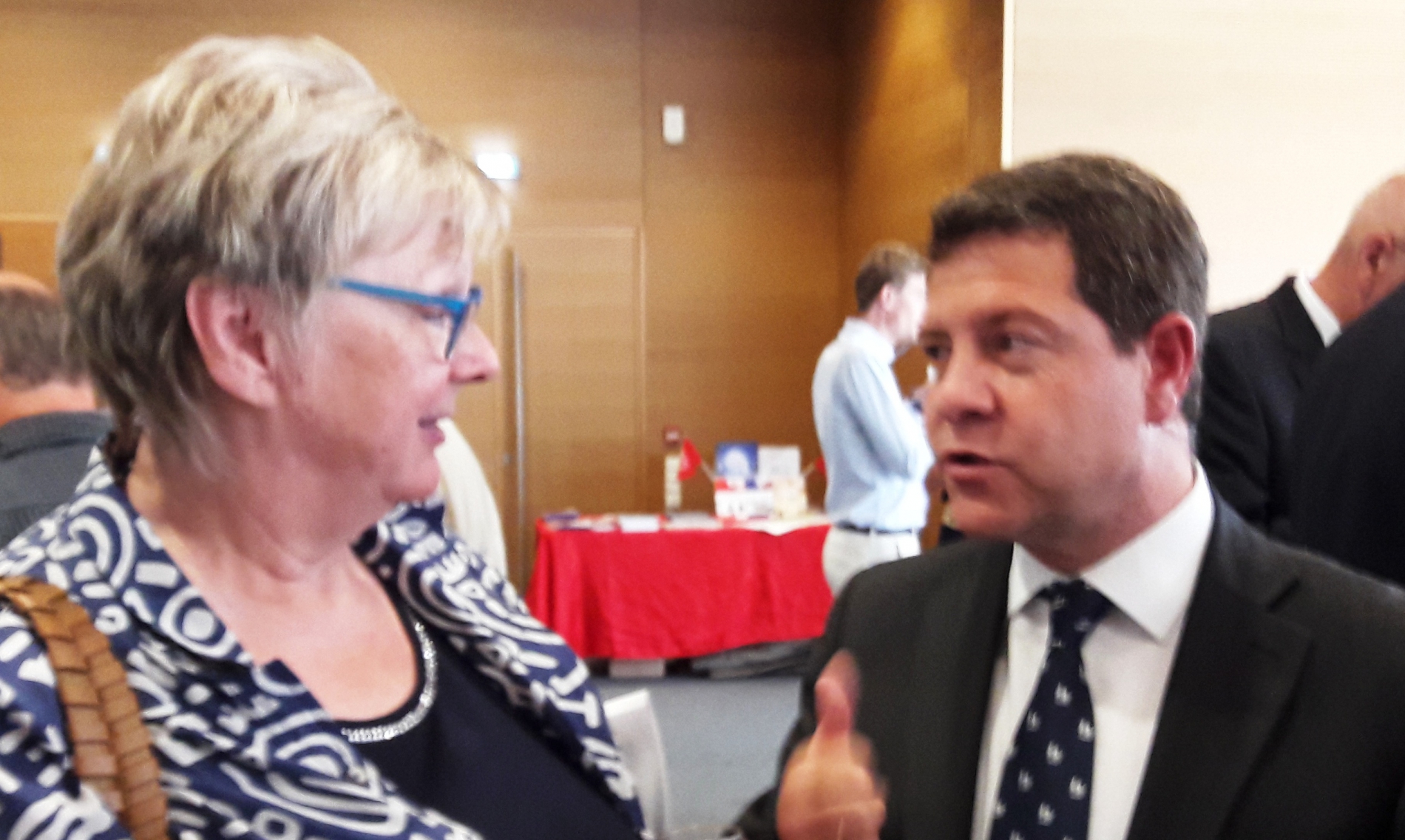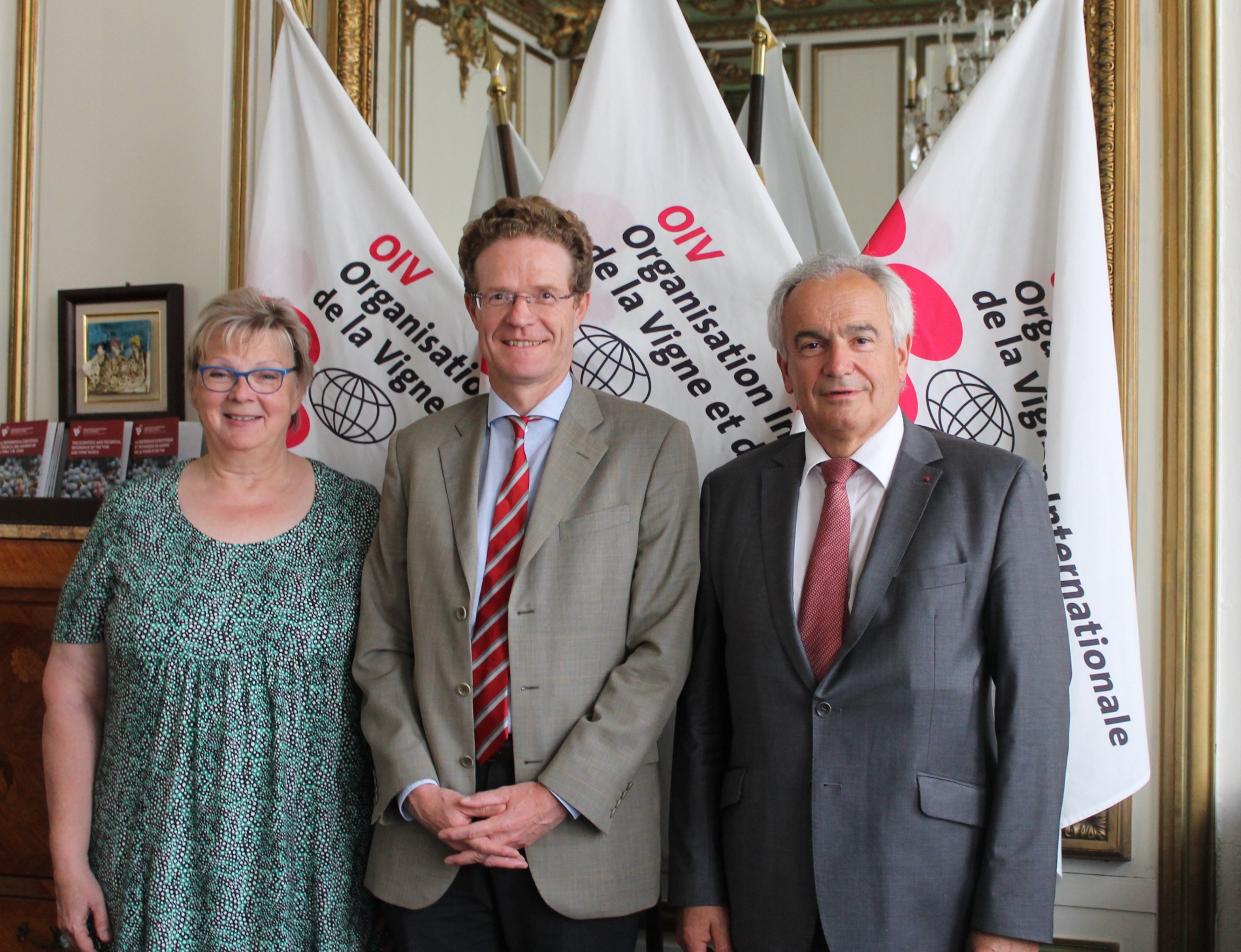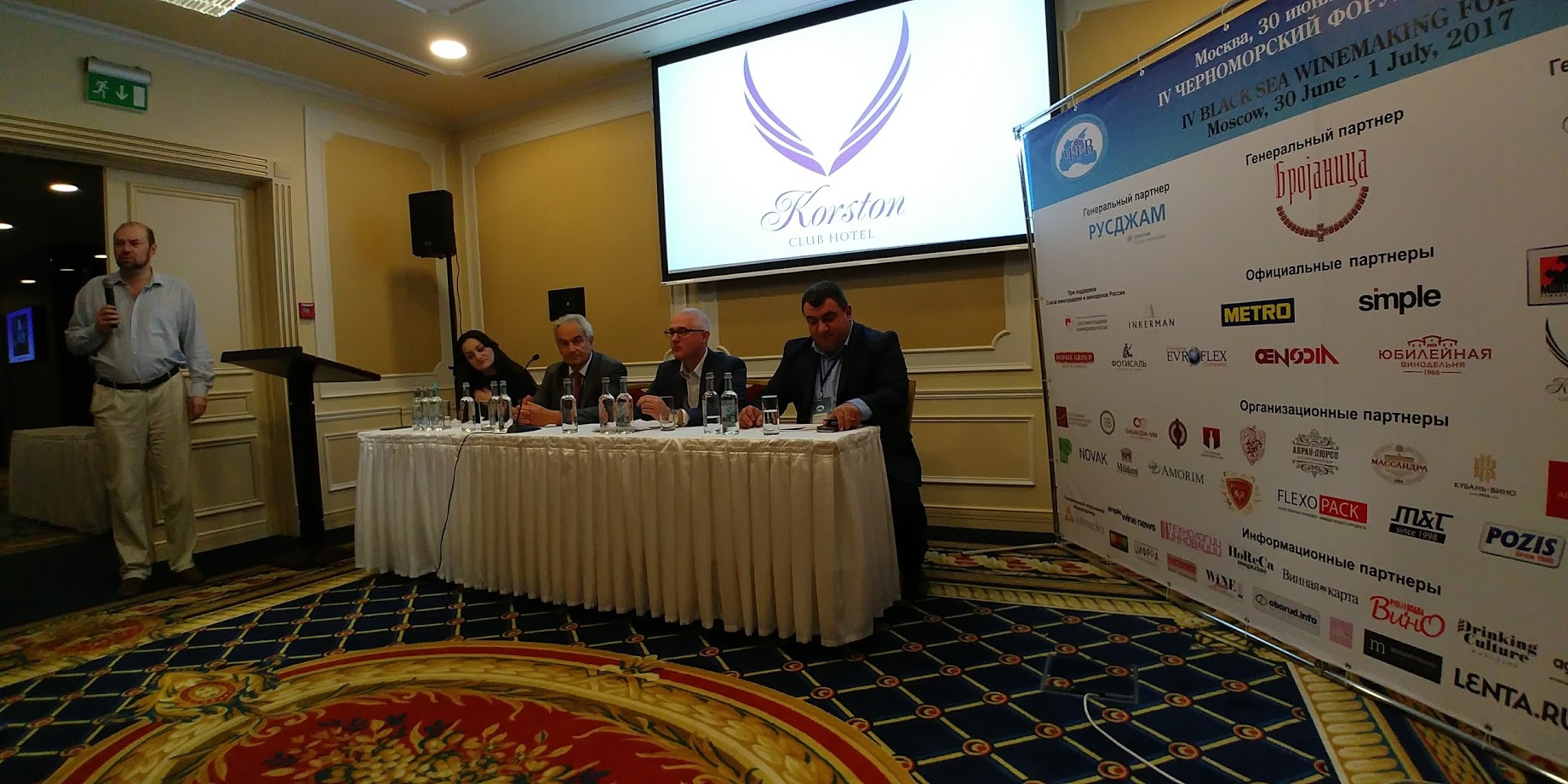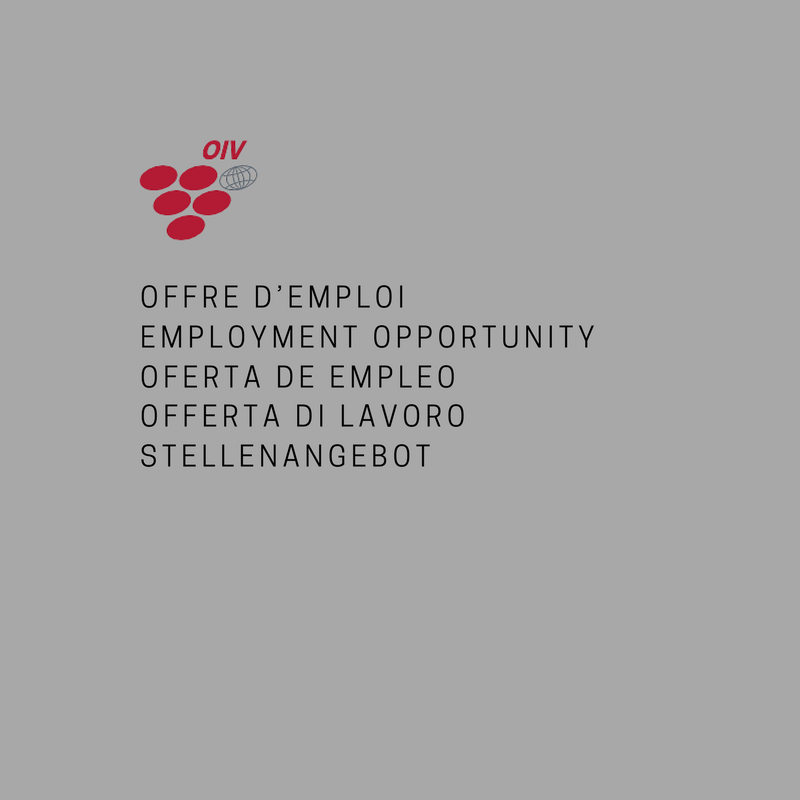24 Sep 2017
To attend this press conference, journalists are kindly asked to send an email with their name and their professional contact details to press@oiv.int.Date: Tuesday 24 October 2017Time: 11 amLocation: International Organisation of Vine and Wine, (OIV), 18 Rue d'Aguesseau, Paris 75008 - Metro station Madeleine or Concorde [see map]
17 Sep 2017
On 13-17 September, the first International Wine and Chinese Food Forum was held in Fangshan, near to Beijing.Placed under the patronage of the OIV, the aim of this event was to promote wine in China paired with Chinese cuisine.Around 20 experts (sommeliers, masters of wine, top chefs and specialist journalists), a third of whom were from other countries, selected the best pairings from a dozen or so traditional Chinese dishes and wine samples chosen out of 300 wines from around the world. Also on the programme was an international wine exhibition as well as a conference series on the theme of 'wine and culture'.On 13-17 September, the first International Wine and Chinese Food Forum was held in Fangshan, near to Beijing.Organised with the support of around 20 vitivinicultural companies from Fangshan District and the District government, this event brought together several thousand participants.On this occasion, the Director General of the OIV, after a presentation of the Organisation, issued a panorama of the vitivinicultural sector at the global scale and the main issues for the future – with a particular focus on different approaches for promoting vitiviniculture through its historical and cultural dimensions.During this visit, in Beijing, Jean-Marie Aurand met Mr Qu Dongyu, Vice-Minister for Agriculture in charge of international cooperation, and was received by Mr Bian Zhenhu, President of the China Chamber of Commerce of Import and Export of Foodstuffs and Native Produce (CFNA), which is linked to the Chinese Ministry of Commerce. With Mr Qu Dongyu, Vice-Minister for Agriculture in charge of international cooperationWith Mr Bian Zhenhu, President of the China Chamber of Commerce of Import and Export of Foodstuffs and Native ProduceThe Director General praised the development of relations between China and the OIV, particularly with regions that have observer status (Yantai in Shandong and Ningxia) but also with the Enology faculty of the University in Yangling.The OIV has received a growing number of requests from all of the Chinese wine regions at a time when the Chinese vitivinicultural sector is seeing strong growth.Jean-Marie Aurand expressed to those with whom he spoke the wish for this cooperation to result in the full accession of China to the OIV.With a surface area of 875 000 hectares, 85% of which are destined for table-grape production, China has the 2nd largest area under vines in the world. China is the leader among producing and consuming countries for table grapes. Wine production has reached 11.5 million hectolitres – placing it 8th in the world – and consumption 17 million hectolitres, making China the 5th biggest consumer.
10 Sep 2017
Under OIV patronage this event brought together over 350 members of the industry, researchers, and administrators. Thirty of the researchers and experts, of which a quarter came from abroad, presented their work in different vitivinicultural domains. The themes included viticulture, enology, and economy with specific focus on new developments related to climate change as well as environmental subjects. Jean-Marie Aurand opened the conference with a presentation of the OIV and its missions followed by a panorama of the worldwide vitivinicultural industry. The Director General also highlighted some of the major challenges the industry may face in the future in regards to competitiveness, the environment, and consumer expectations. In the presence of South African additional delegate to the OIV, Mrs. Wendy Jonker, as well as many other experts including, Jan Booysen, Yvette Van der Merwe and Pierre Van Rensburg, the Director General congratulated the South African delegation on their excellent participation and contributions to the Organisation. A member of the OIV since 1963, South Africa is home to 130 000 hectares of vineyards and is the seventh largest producer worldwide with a production of 10 million hectoliters of wine. South Africa is also an important producer and exporter of table grapes with an annual production of 280 000 tons, of which 90% are exported.
03 Aug 2017
Professor of Food Technology at the universities of Valencia – at which she became the first female registered agricultural engineer in 1966 – and of Navarra, Professor Casp was known internationally for her work and publications in the field of food technology and safety.A member of the Spanish delegation to the OIV, she presided the "Training" Expert Group in 2001-2007 and contributed greatly to the implementation of the database of international vitivinicultural training programmes. She was further involved in the university and research sector as President of the International University Association of Wine (AUIV), an OIV observer.She will be remembered as a warm person with highly appreciated human qualities and recognised scientific competences.The OIV shares in the pain of her husband and family.Professor Casp was known internationally for her work and publications in the field of food technology and safety(c) Eva Mañez
30 Jul 2017
After beginning his career in the automotive and road safety sector, he moved into the Régie des alcools, des courses et des jeux du Québec (Quebec Alcohol, Racing and Gaming Control Commission), where he was President-Director General. He was passionate about the wine sector and was an initiator of the creation of the Sélections Mondiales des Vins Canada, over which he presided since 2006.A recognised international taster, he was also involved in the creation of the World Federation of Major International Wine and Spirits Competitions (VINOFED), for which he was Secretary General, then President.A veritable 'travelling taster' and host at all of the prestigious competitions on the planet, he was also passionate about long-distance cruises.A member of numerous Bacchanalian fraternities – for which he also presided at the global meeting – Ghislain K.-Laflamme was a man of great culture and a lover of history, who was proud of his Breton origins and enjoyed sharing with humour many personal anecdotes from a life dedicated to law and wine.The OIV shares in the pain of his family and friends.Ghislain K.-Laflamme was a man of great culture and a lover of history, who was proud of his Breton origins and enjoyed sharing with humour many personal anecdotes from a life dedicated to law and wine
18 Jul 2017
Before the 123 Member States of the Codex Alimentarius – and within the framework of relations between the Codex Alimentarius Commission and other international organisations – Monika Christmann participated in the round table organised under the presidency of Dr Awilo Ochieng Pernet, President of the Codex Alimentarius Commission, regarding the collaboration between the Codex and other intergovernmental organisations, particularly within the field of sustainable development.The OIV President emphasised that the OIV was participating in several Codex projects under way and that it was actively involved, particularly in discussions concerning the provisions relative to food additives that appear in the General Standard for Food Additives (GSFA). She insisted on the need to ensure consistency among the standards of the Codex and those of the OIV, especially in relation to food additives used for grape wines. Additionally, she declared that the OIV paid close attention to the work of the Codex as well as that of the Joint FAO/WHO Expert Committee on Food Additives (JECFA) in order to avoid the duplication of work and the establishment of divergent international standards.With respect to sustainable development, the President indicated that the OIV had recently developed actions taking into account not only the agronomic aspect but also the economic and societal aspects.The OIV President concluded that it was necessary to pursue cooperation and coordination with regard to activities of common interest to the OIV and the Codex.Monika Chirstmann insisted on the need to ensure consistency among the standards of the Codex and those of the OIV, especially in relation to food additives used for grape wines
16 Jul 2017
On this occasion, Monika Christmann gave a presentation on the situation of the world wine sector and its main development trends.She also addressed different subjects the OIV works on and that constitute such key issues for the future of vitiviniculture: environmental issues, sanitary concerns, labelling, etc.The OIV President praised the good collaboration with AREV, which benefits from observer status within the Organisation.Monika Christmann with the new AREV President, Emiliano García-Page Sánchez (from the Castilla-La Mancha region, Spain)The Assembly of European Wine Regions is an association that brings together the wine-producing regions in Europe (at a politico-professional level) and whose mission is to defend and promote European viticulture. It comprises 65 regions from 18 European countries.
05 Jul 2017
During this meeting, the President and Director General of the OIV gave a presentation of the Organisation and welcomed the quality of relations maintained with the German authorities, as well as the high level of involvement of German experts in the work of the OIV.The Ambassador expressed his delight with this collaboration within a sector that not only plays an important economic role (Germany falls within the top 10 wine-producing countries and is the 4th biggest consuming country), yet also has a strong cultural and historic dimension.
02 Jul 2017
Every year this event, placed under the patronage of the OIV and presided by Vitaly Merkushev, brings together actors in the vitivinicultural field from countries in the Black Sea area.400 participants, wine producers, oenologists, sommeliers, distributors, researchers, government representatives and journalists from 20 or so countries took part in this meeting, whose aim was to promote economic and technical cooperation by highlighting the common vitivinicultural characteristics of the region.During a conference dedicated to the implementation of a common working framework between the different actors, OIV Director General Jean-Marie Aurand gave a presentation on the major developments in the global vitivinicultural sector. This included a focus on the “spaces of convergence” of the vitivinicultural industry around the Black Sea, and the axes and actions for cooperation likely to be put in place.The presentation of wines organised as part of the Forum brought together over 70 companies.During the opening ceremony, Jean-Marie Aurand officially presented an OIV Merit Award to Lev Oganesyants, Director of the Russian Research Institute for Wine, Beer and Soft Drink Industries. Engineer, oenologist, teacher, researcher and then professor, elected in 2015 to the Russian Academy of Sciences, Lev Oganesyants has devoted his career to the vitivinicultural sector. The author of more than 350 scientific publications and 15 or so works including one on the history of the vine and wine field in Russia, which received a Special Mention from the OIV, for many years he was the Russian point of contact and official representative within the Organisation.The Director of the OIV expressed his heartfelt thanks to Professor Oganesyants for his continual and efficient actions to strengthen relations between the OIV and the Russian Federation.
26 Jun 2017
The existing databases are currently processed autonomously in Excel and Access and are partially accessible and static on the OIV website.The objective is to have a permanent database that, in a second phase, can be used (for searches, status reports, graphs, etc.) both internally and on the OIV website through fun and configurable visual extractions.Recruitment conditionsApplication form
